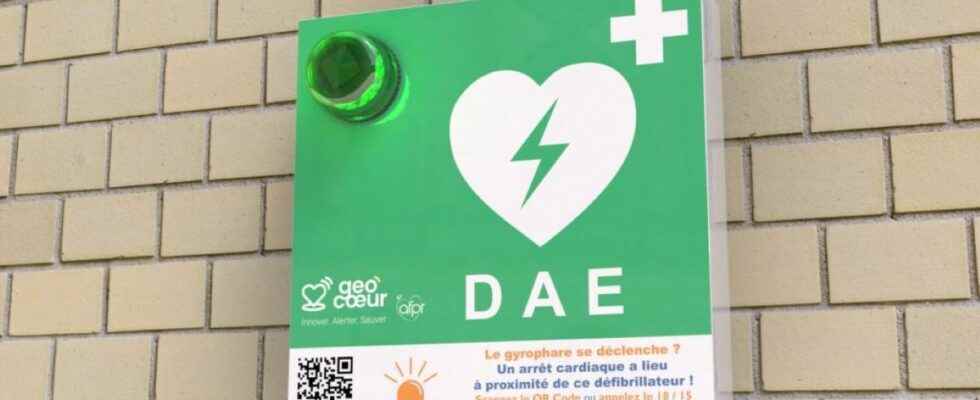Posted 1 day ago,
Reading 2 mins.
It’s a case that saves lives! “Géocoeur”, a connected defibrillator accessory, which is automatically triggered during a call to the emergency services for a heart attack, was rewarded on Sunday evening by the jury of the Lépine competition.
Sunday evening, during the 121st edition of the Lépine competition, a case won out among the 358 inventions in competition. It is “Geoheart“, an innovative accessory designed by Frédéric Leybold and intended to save victims of cardiac arrest. It broadcasts a light and sound signal during a call to the emergency services for a heart attack.
This funny box installed above the defibrillators is connected to the emergency services (calls to 15, 18, 112). Thus, as soon as a cardiac arrest occurs, the server geolocates the defibrillators closest to the victim and triggers the boxes nearby. The flashing light comes on and a voice message is automatically emitted by the loudspeakers: “Cardiac arrest nearby, we need that defibrillator”.
Passers-by can then flash the QR code to locate the person and provide help before help arrives. The distance that separates them from the place of cardiac arrest, on foot and by car, is indicated.
“As soon as we flash the QR code, we receive the address of the person in cardiac arrest”specifies Frédéric Leybold, designer of Géocoeur and president of the AFPR.
The time to first intervention, crucial during a cardiac arrest, is thus reduced.
For the moment, only the Moselle is concerned by the device, where 30 Geocoeurs have been installed. But the objective of the French Association of First Responders (AFPR) is to democratize the device:
“The Paris fire brigade is already interested”confides Frédéric Leybold.
“Geocoeur”: referents will be appointed
Although it is already effective and in place, the box of the association will soon be perfected.
“The update of the box will integrate “referent people” who will be automatically called in the event of a heart attack. The goal? Help isolated victims in small villages, suffering from a lack of passage”testifies the president of the AFPR.
As a reminder, 80% of cardiac arrests occur at home. The witnesses present therefore did not have time to fetch a defibrillator. Hence the need to bring one before the arrival of help.
Changing mentalities is also necessary.
“Far too many French people do not yet know how to use a defibrillator. The “fear of doing wrong” persists, when it is better to try to do something than not to try anything. I encourage all French people to intervene because that’s how we save lives“, concludes Frédéric Leybold.
